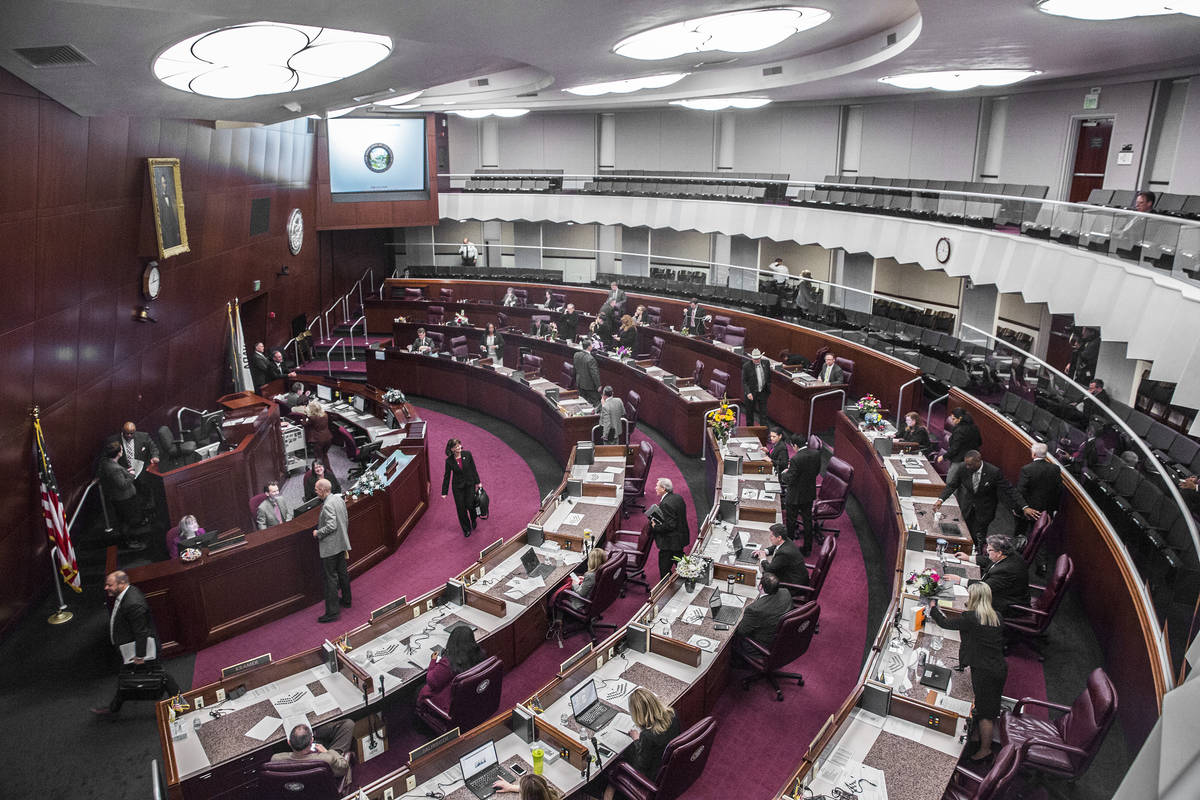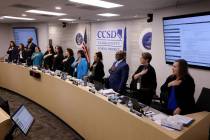EDITORIAL: Transparency on the chopping block
Well, that didn’t take long, did it.
Less than two weeks into the 2021 legislative session, lawmakers are already proposing to dilute the state’s open meeting law by creating exemptions for certain environmental discussions.
It’s an awful idea.
Senate Bill 77, introduced on behalf of the Legislative Committee on Public Lands, has been presented as an effort to address tension between Nevada laws promoting government transparency and federal statutes that allow for confidential deliberations involving the drafting of environmental statements required for many infrastructure and construction projects.
Under the proposal, local public bodies that have “entered into a memorandum of understanding or other agreement with a federal agency for the purpose of engaging with the federal agency on a decision under the National Environmental Policy Act of 1969, may hold a closed meeting to engage in predecisional and deliberative discussions on the subject of the memorandum or agreement.”
Federal agencies are supposed to seek input from locals on such statements, but the federal Freedom of Information Act also allows certain deliberations and discussions to be held outside of public view. Rural officials argue this puts them in the awkward position of having to either violate state statutes or to break confidentiality agreements with D.C. agencies.
The Nevada Current reported that both the Nevada Association of Counties and Eureka County support SB77. “This bill in no way undermines government in the sunshine,” Eureka County Natural Resource Manager Jake Tibbetts said, the Current reported. “It doesn’t allow for backdoor deals, at least that isn’t our intent.”
Perhaps not, but why the sudden fear of the feds? The environmental law in question has been around for more than 50 years and local officials have offered their perspectives without incident for decades. There’s no pressing need to blow out a hole in the state open meeting statutes under the guise of accommodating Washington.
Rather than retreat on transparency, the counties ought to be pushing for the federal government to be more forthcoming about its own procedures and conclusions. Exemption 5 of the Freedom of Information Act does indeed allow agencies to protect certain internal government deliberations, but critics argue it is perhaps the most abused exemption in the law.
“Exemption 5 is commonly interpreted as shielding from release draft government documents, records of sensitive deliberations before decisions are made and government attorney-client deliberations,” Nick Schwellenbach and Sean Moulton wrote last year for pogo.org. “These types of documents deserve some protection. But agencies stretch the exemption to inappropriately cover other information, such as records that may paint the agency in a bad light, records that reveal problems and records that contain embarrassing information.”
Covering up incompetence or embarrassing information is not a proper use of the law. A healthy democratic republic depends on an informed citizenry. Yet too often — usually between 60,000 and 70,000 times a year, statistics show — federal bureaucracies cite Exemption 5 as their reason for ignoring FOIA requests.
In its most recent tweak of the Freedom of Information Act in 2016, Congress attempted to address the problem of agencies overusing the deliberation exemption to thwart accountability. Yet the problem remains, and Congress should revisit the issue in the name of enhancing trust in government.
As for SB77, it should be forever locked in the back of a deep desk drawer. Nevadans, particularly those in rural areas, where the federal government controls the vast majority of land, have a vested interest in examining how decision are made regarding land use. Counties should be actively working to further open the process rather than abetting federal efforts to keep the lights off.






















